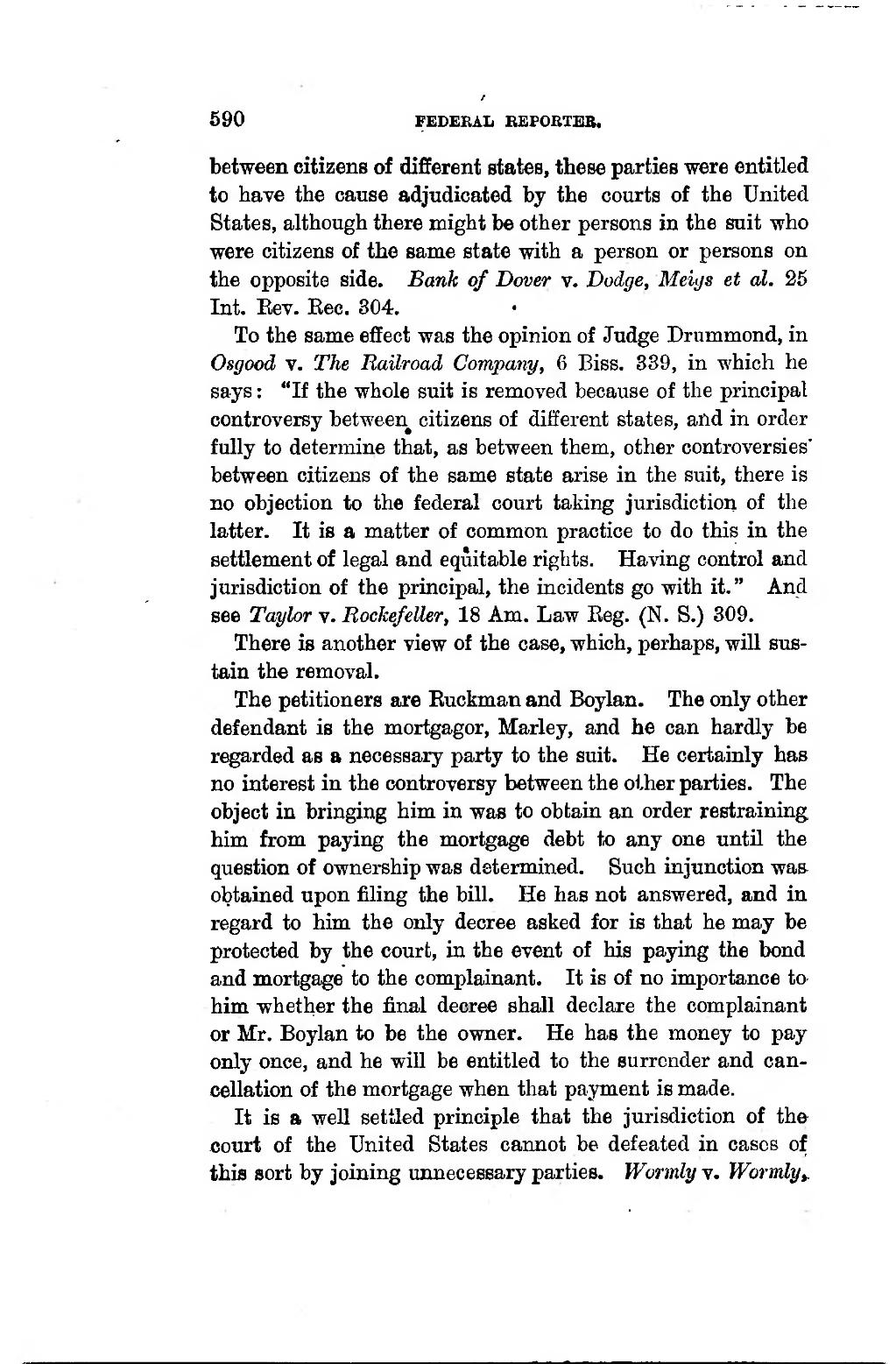590 FEDEBaii BBFOBTBB. �between citizens of different states, these parties were entitled to have the cause adjudicated by the courts of the United States, although there might be other persons in the suit who were citizens of the same state with a person or persons on the opposite side. Bank of Dover v. Dodge, Mevjs et al. 25 Int. Eev. Eec. 304. �To the same effect was the opinion of Judge Drummond, in Osgood y. The Railroad Company, 6 Biss. 389, in which he says : "If the whole suit is removed because of the principal controversy between citizens of different states, aiid in order fully to determine that, as between them, other controversies' between citizens of the same state arise in the suit, there is no objection to the federal court taking jurisdiction of the latter. It is a matter of common practice to do this in the settlement of legal and equitable rights. Having control and jurisdiction of the principal, the incidents go with it. " And see Taylor v. Rockefeller, 18 Am. Law Eeg. (N. S.) 309. �There is another view of the case, which, perhaps, will sus- tain the removal. �The petitioners are Euckman and Boylan. The only other defendant is the mortgagor, Marley, and he can hardly be regarded as a necessary party to the suit. He certainly bas no interest in the controversy between the other parties. The object in bringing him in was to obfcain an order restraining him from paying the mortgage debt to any one until the question of ownership was determined. Such injunction was obtained upon filing the bill. He bas not answered, and in regard to him the only decree asked for is that he may be protected by the court, in the event of his paying the bond and mortgage to the complainant. It is of no importance to him whether the final decree shall declare the complainant or Mr. Boylan to be the owner. He bas the money to pay only once, and he will be entitled to the surrcnder and can- cellation of the mortgage when that payment is made. �It is a well settled principle that the jurisdiction of the court of the United States cannot be defeated in cases of this sort by joining unnecessary parties. Wormly v. Wormlyy ��� �
Page:Federal Reporter, 1st Series, Volume 1.djvu/598
This page needs to be proofread.
